Abstract
OBJECTIVES. The purpose of the study was to determine whether moderate alcohol use mediates or buffers the effect of stress on depression in a group of non-Hispanic White men and women. METHODS. Data are from the Los Angeles Epidemiological Catchment Area cohort. Individuals were assessed at two time periods, 1 year apart. Mean depression scores were analyzed for each level of stress and alcohol use. RESULTS. In the simultaneous presence of both chronic strain and negative life events, a U-shaped pattern was observed in which abstainers and light and heavy drinkers had higher depression scores at the second time period than did light-moderate and moderate alcohol users. The U-shaped relationship remained when the effects of sex, age, and physical health status were controlled. CONCLUSIONS. Light-moderate and moderate drinkers had less depression in the presence of stress than persons in other more extreme drinking categories. Moderate alcohol use may serve as a proxy for a spectrum of generally moderate behaviors that either attenuate the effect of stress on depression or suppress the effects of stress.
Full text
PDF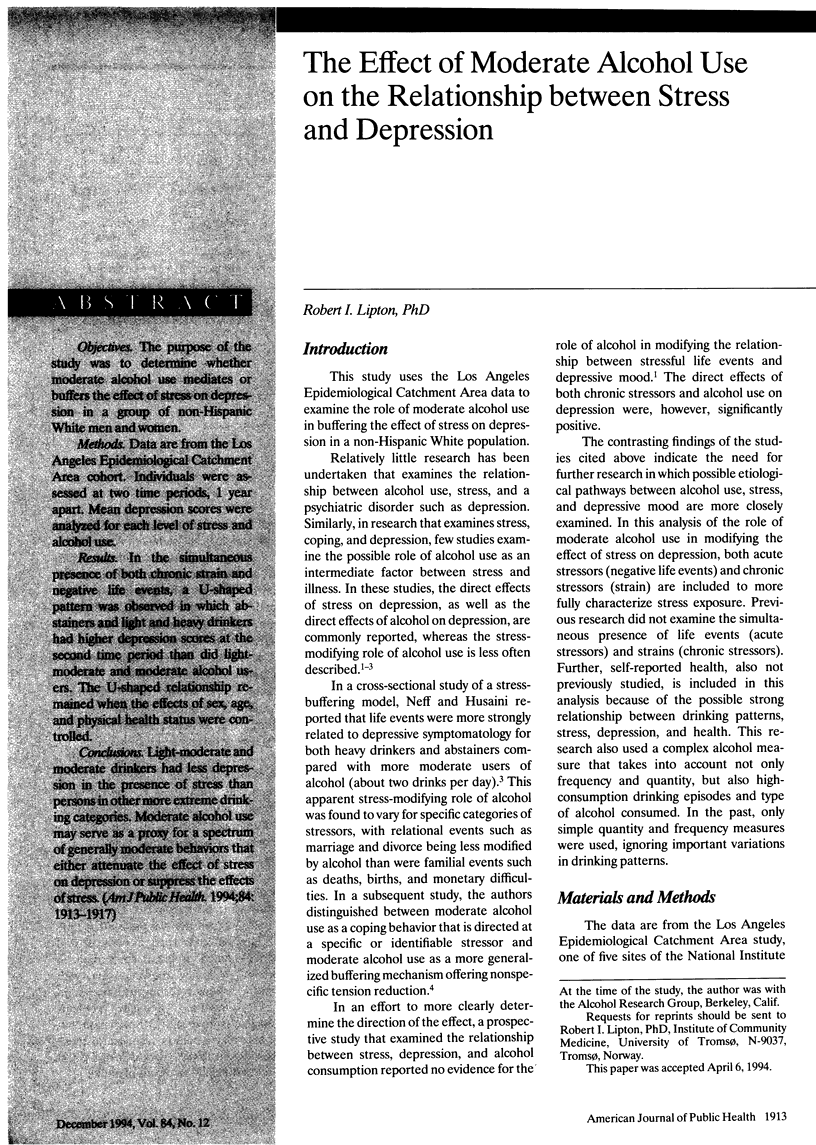
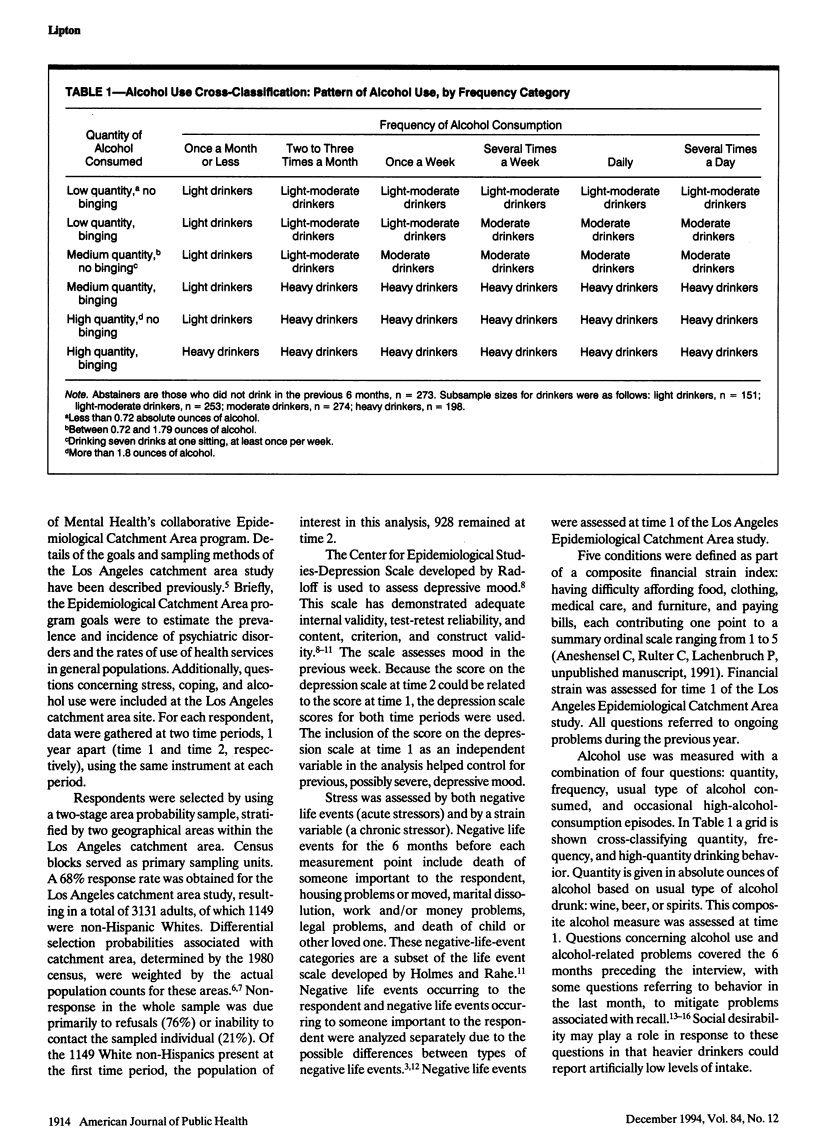
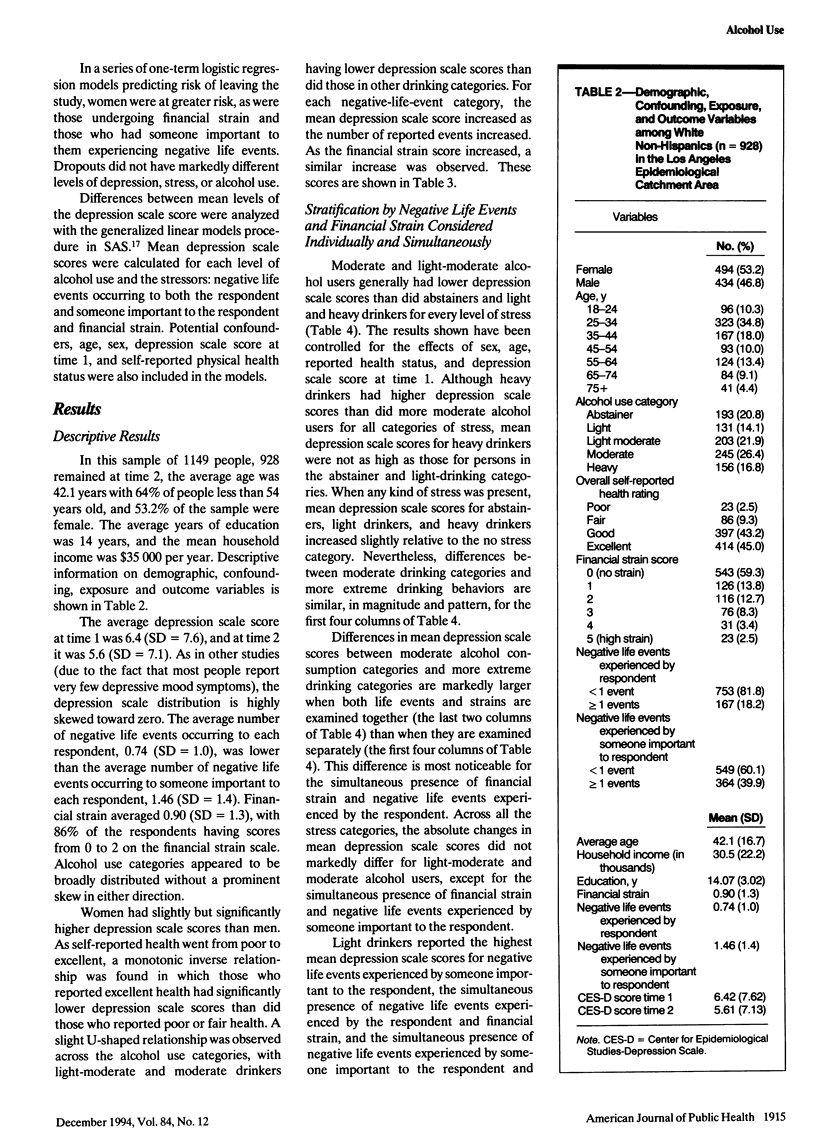
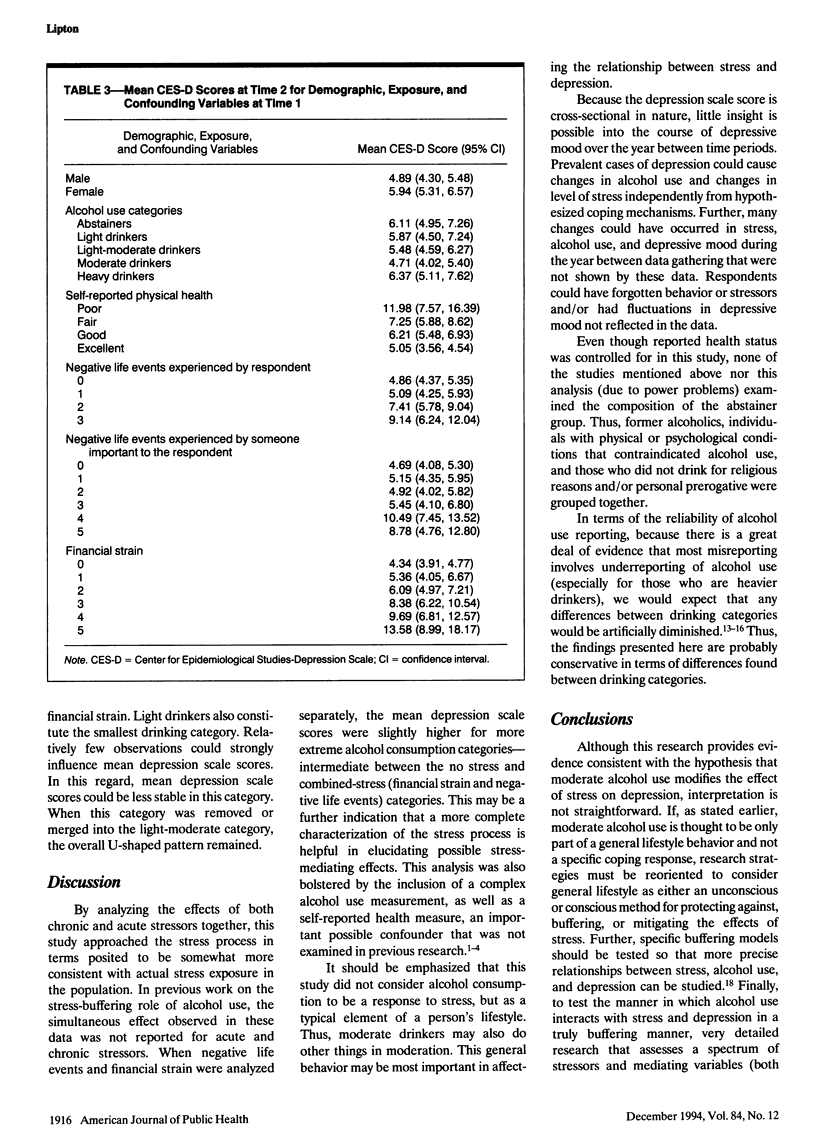
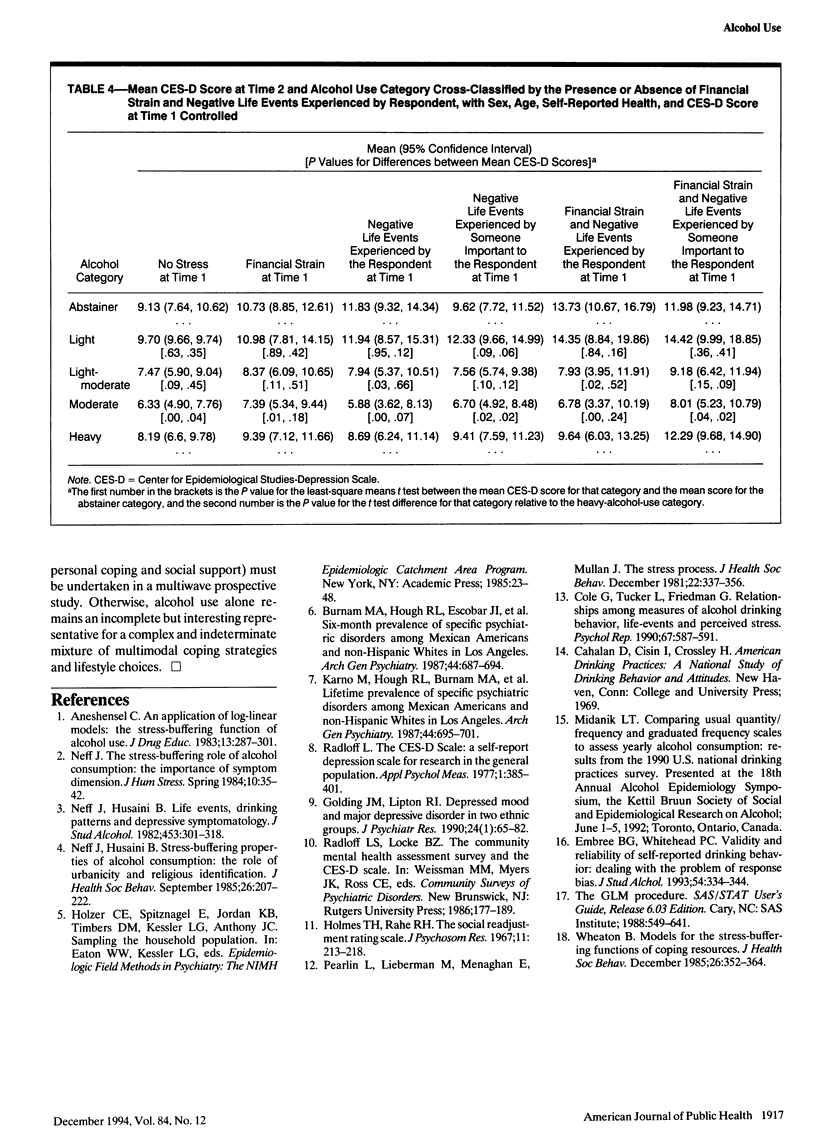
Selected References
These references are in PubMed. This may not be the complete list of references from this article.
- Burnam M. A., Hough R. L., Escobar J. I., Karno M., Timbers D. M., Telles C. A., Locke B. Z. Six-month prevalence of specific psychiatric disorders among Mexican Americans and non-Hispanic whites in Los Angeles. Arch Gen Psychiatry. 1987 Aug;44(8):687–694. doi: 10.1001/archpsyc.1987.01800200013003. [DOI] [PubMed] [Google Scholar]
- Cole G., Tucker L., Friedman G. M. Relationships among measures of alcohol drinking behavior, life-events and perceived stress. Psychol Rep. 1990 Oct;67(2):587–591. doi: 10.2466/pr0.1990.67.2.587. [DOI] [PubMed] [Google Scholar]
- Embree B. G., Whitehead P. C. Validity and reliability of self-reported drinking behavior: dealing with the problem of response bias. J Stud Alcohol. 1993 May;54(3):334–344. doi: 10.15288/jsa.1993.54.334. [DOI] [PubMed] [Google Scholar]
- Golding J. M., Lipton R. I. Depressed mood and major depressive disorder in two ethnic groups. J Psychiatr Res. 1990;24(1):65–82. doi: 10.1016/0022-3956(90)90025-l. [DOI] [PubMed] [Google Scholar]
- Holmes T. H., Rahe R. H. The Social Readjustment Rating Scale. J Psychosom Res. 1967 Aug;11(2):213–218. doi: 10.1016/0022-3999(67)90010-4. [DOI] [PubMed] [Google Scholar]
- Karno M., Hough R. L., Burnam M. A., Escobar J. I., Timbers D. M., Santana F., Boyd J. H. Lifetime prevalence of specific psychiatric disorders among Mexican Americans and non-Hispanic whites in Los Angeles. Arch Gen Psychiatry. 1987 Aug;44(8):695–701. doi: 10.1001/archpsyc.1987.01800200021004. [DOI] [PubMed] [Google Scholar]
- Neff J. A., Husaini B. A. Life events, drinking patterns and depressive symptomatology; the stress-buffering role of alcohol consumption. J Stud Alcohol. 1982 Mar;43(3):301–318. doi: 10.15288/jsa.1982.43.301. [DOI] [PubMed] [Google Scholar]
- Neff J. A., Husaini B. A. Stress-buffer properties of alcohol consumption: the role of urbanicity and religious identification. J Health Soc Behav. 1985 Sep;26(3):207–222. [PubMed] [Google Scholar]
- Neff J. A. The stress-buffering role of alcohol consumption: the importance of symptom dimension. J Human Stress. 1984 Spring;10(1):35–42. doi: 10.1080/0097840X.1984.9934957. [DOI] [PubMed] [Google Scholar]
- Pearlin L. I., Lieberman M. A., Menaghan E. G., Mullan J. T. The stress process. J Health Soc Behav. 1981 Dec;22(4):337–356. [PubMed] [Google Scholar]
- Wheaton B. Models for the stress-buffering functions of coping resources. J Health Soc Behav. 1985 Dec;26(4):352–364. [PubMed] [Google Scholar]


